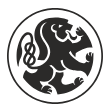Detailed introduction of University of Salzburg:
Introduction
The University of Salzburg (German: Universität Salzburg) is a public university located in Salzburg, the capital of the Austrian state of Salzburg. It is also the largest and oldest university in the state and is known as the "largest institution of higher learning in the city of Mozart".
Overview
Student size: There are about 18,000 students, including 6,840 international students.
Number of faculty and staff: The school has 2,800 faculty and staff, providing strong support for teaching and scientific research.
History
Establishment time: The school was originally established in 1622, but was closed in 1810 and then re-established in 1962.
Development process: In 1622, Archbishop Paris Lodron appointed Albert Keus Lin as the first president of the Benedictine University, which was established and maintained by the Federation of Benedictine Monasteries in Salzburg, Switzerland, Bavaria and Austria during the Thirty Years' War. In 1803, the Archdiocese of Salzburg was secularized as the Electorate of Salzburg, and a medical school was established. In 1810, after Salzburg was annexed by the Kingdom of Bavaria, the university was closed. In 1850, the theology department was transformed into a college again. In 1962, the University of Salzburg was rebuilt with a Catholic Faculty of Theology and Philosophy, which resumed in 1964, and the Faculty of Law was added the following year. In 1975, a new federal law stipulated the organizational structure of all universities in Austria, and the University of Salzburg created four academic departments. In 1995, the University of Austria was further reorganized, and the university gradually incorporated new academic courses.
School Strength
Teaching Resources: The school has six colleges under its jurisdiction, including the Catholic College, the School of Law, the School of Culture and Social Sciences, the School of Natural Sciences and the School of Interdisciplinary Studies. It has opened 30 learning programs and 70 majors, providing students with a wealth of professional choices.
Academic Research: The school has carried out in-depth research in multiple disciplines, especially in culture and social sciences, natural sciences, etc., and has achieved remarkable results. Its research projects and results have a certain influence internationally and have made important contributions to promoting academic progress.
Institutional Nature
The University of Salzburg is a public university.
Educational Philosophy
Committed to cultivating high-quality talents with innovative spirit, solid professional knowledge and international vision, focusing on the combination of theory and practice, emphasizing the close connection between academic research and teaching, and encouraging students to actively participate in scientific research activities and social practice to improve students' comprehensive quality and competitiveness.
Key Laboratories and Disciplines
Key Disciplines: Majors such as sociology, philosophy, linguistics in the field of culture and social sciences, and majors such as biology, physics, chemistry in the field of natural sciences have strong strength and high teaching and research levels. For example, the sociology major has achieved important results in research directions such as social change and social structure; the biology major has carried out in-depth research in the fields of molecular biology and ecology.
Key laboratories: The school has a number of advanced scientific research laboratories, such as the Christian Doppler Laboratory, which provide important platform support for cutting-edge research in related disciplines and promote the development and innovation of disciplines.
Department
The school has six departments, namely the Department of Catholic Theology, the Department of Law and Economics, the Department of Cultural Sciences, the Department of Social Sciences, the Department of Natural Sciences, and the Department of Analysis and Life Sciences.
Ranking
2024 QS World University Rankings: 681st.
2024 THE World University Rankings: 601st.
2023 Shanghai Jiao Tong University World University Academic Ranking: 801st.
Expenses
Tuition fees: Tuition fees per semester are about several hundred euros, and the specific fees vary depending on the major and degree type.
Living expenses: In Salzburg, the monthly living expenses are about 800-1200 euros, including expenses for accommodation, food, transportation, entertainment, etc.
Campus
Location and environment: The main campus is located in the historical center of Salzburg. There is no centralized campus, but it is distributed in multiple buildings, such as part of the Salzburg Palace and Kapitelgasstraße on the south side of Salzburg Cathedral. In addition, the Unipark Nonntal campus built in 2011 is home to departments such as modern languages, culture and social sciences. The school is surrounded by a strong cultural atmosphere, with many historical buildings and cultural attractions, such as Mozart's former residence, providing students with a wealth of extracurricular life options.
Architectural style: The campus has a variety of architectural styles, including both ancient historical buildings and modern teaching and research facilities. The integration of the two shows the school's long historical heritage and the vitality of development that keeps pace with the times.
-

Graz University of Technology
-

University of Linz
-
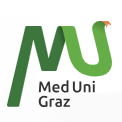
Medical University of Graz
-

University of Leoben
-
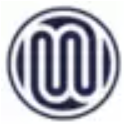
Medical University of Vienna
-
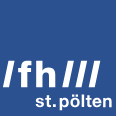
St. Pölten University of Applied Sciences
-
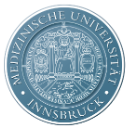
Innsbruck Medical University
-
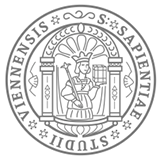
University of Vienna
-

Vienna University of Technology
-

University of Natural Resources and Applied Life Sciences, Vienna
-

Mesoamerican University
-

Istmo University
-

Mariano Galvez University of Guatemala
-

Regional University of Guatemala
-

Galileo University
-

Francisco Marroquín University
-

Rafael Landívar University
-

University of the Valley of Guatemala
-

University of San Carlos of Guatemala
-

Technological Institute of Tlaxcala Plateau
-

Golfo University
-

Technological University of South Sonora
-

Technological University of Huejotzingo
-

Tizimín Institute of Technology
-

Chilpancingo Institute of Technology

